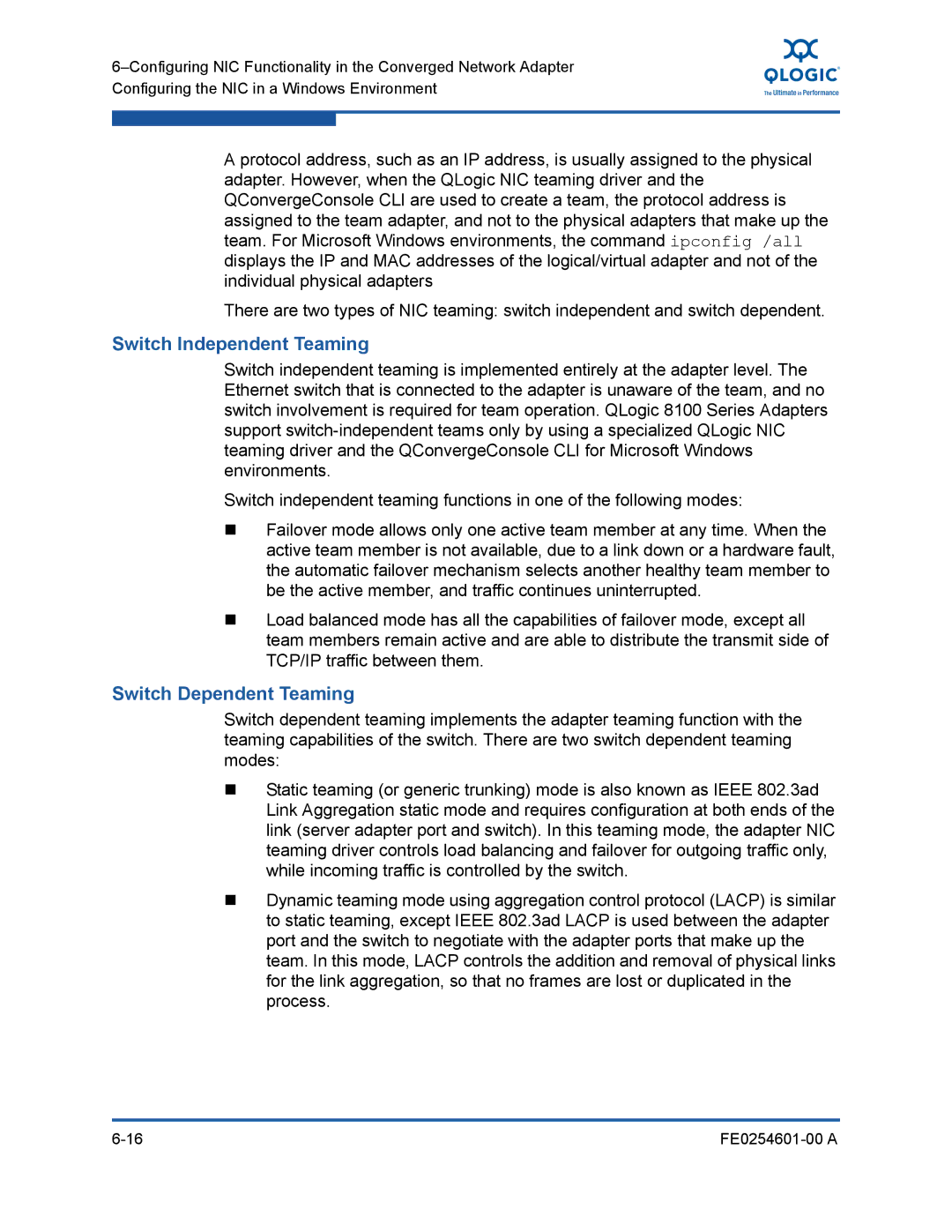
A protocol address, such as an IP address, is usually assigned to the physical adapter. However, when the QLogic NIC teaming driver and the QConvergeConsole CLI are used to create a team, the protocol address is assigned to the team adapter, and not to the physical adapters that make up the team. For Microsoft Windows environments, the command ipconfig /all displays the IP and MAC addresses of the logical/virtual adapter and not of the individual physical adapters
There are two types of NIC teaming: switch independent and switch dependent.
Switch Independent Teaming
Switch independent teaming is implemented entirely at the adapter level. The Ethernet switch that is connected to the adapter is unaware of the team, and no switch involvement is required for team operation. QLogic 8100 Series Adapters support
Switch independent teaming functions in one of the following modes:
Failover mode allows only one active team member at any time. When the active team member is not available, due to a link down or a hardware fault, the automatic failover mechanism selects another healthy team member to be the active member, and traffic continues uninterrupted.
Load balanced mode has all the capabilities of failover mode, except all team members remain active and are able to distribute the transmit side of TCP/IP traffic between them.
Switch Dependent Teaming
Switch dependent teaming implements the adapter teaming function with the teaming capabilities of the switch. There are two switch dependent teaming modes:
Static teaming (or generic trunking) mode is also known as IEEE 802.3ad Link Aggregation static mode and requires configuration at both ends of the link (server adapter port and switch). In this teaming mode, the adapter NIC teaming driver controls load balancing and failover for outgoing traffic only, while incoming traffic is controlled by the switch.
Dynamic teaming mode using aggregation control protocol (LACP) is similar to static teaming, except IEEE 802.3ad LACP is used between the adapter port and the switch to negotiate with the adapter ports that make up the team. In this mode, LACP controls the addition and removal of physical links for the link aggregation, so that no frames are lost or duplicated in the process.
